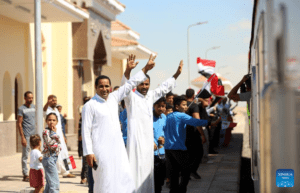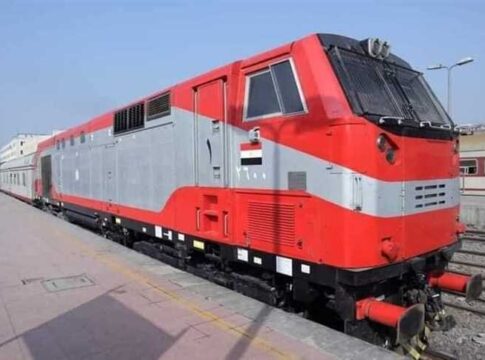In a landmark move to enhance its transportation infrastructure, Egypt has launched a trial passenger train service on the newly refurbished Sinai railway line, signaling a transformative step in the region’s connectivity. For the first time in decades, a passenger train journeyed into the heart of Sinai, marking a significant achievement in Egypt’s efforts to modernize its rail network.
This trial operation on the 100-kilometer Al-Fardan–Bir al-Abd railway line is a pivotal milestone in the Sinai Peninsula’s infrastructure development, overseen by Deputy Prime Minister for Industrial Development and Minister of Industry and Transport, Kamel al-Wazir. The project represents the completion of the first phase of an ambitious plan to develop a comp rehensive 500-kilometer rail network, linking vital locations such as Al-Fardan, East Port Said, Bir al-Abd, Arish, and Taba.
rehensive 500-kilometer rail network, linking vital locations such as Al-Fardan, East Port Said, Bir al-Abd, Arish, and Taba.
Integral to the new Arish–Taba logistical corridor, this railway is designed to stimulate economic growth and ease transportation across Sinai. Initially reinstated for freight services, the line saw its inaugural cargo train on August 6, transporting 25 containers from Alexandria’s Dekheila Container Terminal to East Port Said, showcasing its role in bolstering commercial activities.
Minister al-Wazir highlighted that the introduction of passenger services, following the freight trial phase, will significantly improve travel and logistics within Sinai. The Arish–Taba corridor is expected to play a strategic role in the region’s comprehensive development, offering substantial benefits to residents across North, Central, and South Sinai, and driving economic prosperity.
This revival of rail service in North Sinai, after a half-century hiatus since the 1973 Arab-Israeli conflict, is a cornerstone of the government’s broader economic reform agenda. The railway not only connects various urban centers but also supports the establishment of new industrial zones and urban communities.
Tribal leader Abdel-Hamid al-Akhrasy underscored the railway’s potential to catalyze development across North Sinai, emphasizing its importance in overcoming historical challenges of marginalization and security issues.
Looking forward, Egypt’s transportation overhaul plan envisions a completed network by 2030, featuring a 500-kilometer rail track poised to serve public, industrial, and tourism sectors, heralding a new era of connectivity and growth for the Sinai Peninsula.


